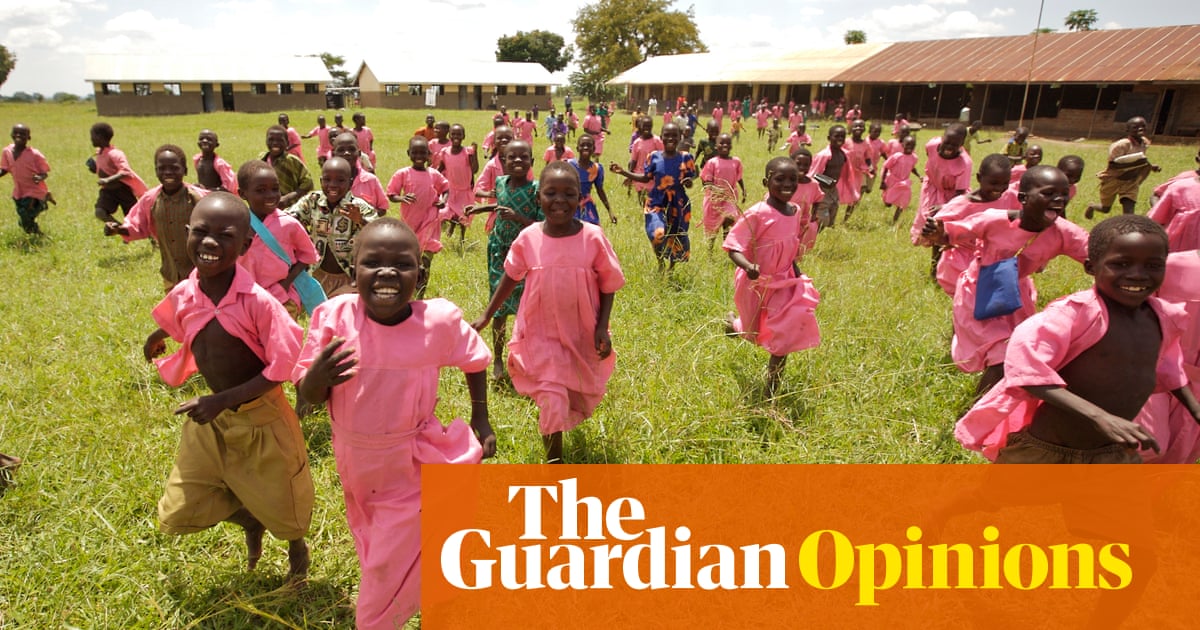Ask any one of the 187 femaleLabourMPs whether they would have made it to the House of Commons without an education and you would probably get short shrift. Most would wax lyrical about their school days and the teachers who taught and inspired them.
Yet the government of which those women make up almost half the total number of MPs is now targeting spending on “education and gender” for cuts in the overseas aid budget. It is beyond depressing.
Jenny Chapman, the international development minister, could not have been clearer when giving evidence to a select committee last week. The decision to reduce aid spending from 0.5% to 0.3% of national income by 2027 meant something had to give, and that was money that had hitherto been spent not just on building schools in poor countries but also encouraging girls to attend them. In a more challenging spending environment, the UK will now make health its priority.
Make no mistake, Chapman faces some unenviable choices. There is no soft landing when you have to implement a 40% cut in your budget. But a slash-and-burn approach to education is indefensible and would have been anathema to previous Labour governments.
Things were certainly different 20 years ago, when the final preparations for a G8 summit at Gleneagles involved the prime minister, Tony Blair, and the chancellor, Gordon Brown, successfully lobbying fellow world leaders for a$50bn aid packageand a comprehensive debt relief deal.
Times are tougher now. At the time of Gleneagles, the global economy was booming and government finances were healthy. The global financial crisis was still two years away, and only the most inveterate pessimists foresaw the age of austerity that would follow the near collapse of the banks.
In 2005, the rich countries of the west were minded to be generous. Today they are not, and it is naive to imagine that the aid budget is going to remain sacrosanct when the British government is planningcuts to disability benefits.
All that said, cutting aid spending on education for girls is still a bad policy choice. Before it was axed as a standalone ministry by the Conservatives and subsumed into the Foreign Office, the Department for International Development commissioned countless studies into whether spending money on encouraging girls to go to school should be a priority for the aid budget. It concluded that it should be – and for good reasons.
Women with an education are far more likely to go to a clinic and have their children vaccinated. They are also more likely to get antenatal care and seek early treatment for diarrhoea and pneumonia, both potential killers.
The evidence is compelling: if all women completed primary education and gained basic literacy, maternal deathswould be reducedby two-thirds.In Malawi, each additional year of maternal education cut infant mortality by 10%. In Uganda, each extra year of schooling cut the risk of infant mortality by more than 16%. Chapman seems not to get the point that cutting education spending will reduce the effectiveness of spending on health.
In 1996, the year before he became prime minister, Blair said the three priorities for a Labour government would be “education, education, education”, and the reason he said that was because investment in education is good for growth and boosts living standards. That applies even more to poor countries than it does to rich countries. In a low-income nation, every year of schooling results in a10% increasein earnings.
Nor is investing in education costly. One study has found that $100 (£75) pays for the equivalent oftwo extra yearsof teaching for girls. With the government keen to ensure that every penny of a reduced aid budget is used effectively, that represents excellent value for money.
Ministers of all parties once accepted all these arguments as a matter of course. This, for example, wasAlok Sharma, Boris Johnson’s international development secretary, back in 2019: “Educating girls prevents child marriage and early pregnancy, helps women into the workforce and boosts household incomes and economic growth. Supporting education for girls and women gives them a greater voice. That voice helps them to shape their own future and advocate for changes in their own lives and, very importantly, the lives of other girls and women.”
All of which remains as true now as it was then. Education is worthwhile not just because of the quantifiable economic benefits – important though they are – but because of the spin-offs it generates. The economist Amartya Senhas pointed outthese intangible gains – confidence, ability to engage in political processes, capacity for absorbing and processing information – that create opportunities. In countries where gender equity is deeply entrenched in homes and labour markets, education is a gamechanger.
If, as Chapman says, a reduced aid budget is the “new normal”, there are ways of mitigating the pain. The government could alter the balance so that more British spending goes through multilateral organisations, such as the World Bank, which have the financial firepower to make pooled resources go further.
It could press harder for a comprehensive debt relief agreement that would allow poor countries to devote more of their spending to education. But that has to start with a different approach. This is not just about the money; it is also about a mindset that appears to have forgotten that encouraging girls to go to school is good for health, good for growth, good for poverty reduction, good for gender equality and good for the self-esteem of women.
Larry Elliott is a Guardian columnist
